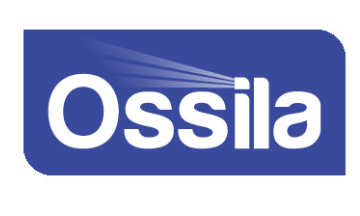Summary
Natalie Stingelin(-Stutzmann) is a Full Professor at Imperial College London and at the Georgia Institute of Technology. She holds a Chaire Internationale Associée by the Excellence Initiative of the Université de Bordeaux. She has prior positions at Queen Mary University of London, UK; the Philips Research Laboratories in Eindhoven, The Netherlands; the Cavendish Laboratories, University of Cambridge, UK; and the Swiss Federal Institute of Technology (ETH) Zürich, Switzerland. She studied Materials Science & Engineering in the Department of Materials at ETH Zürich, and obtained the degree of Engineer in Materials Science in 1997. In 2001, she completed her doctoral studies in the Polymer Technology Group, for which she was awarded the ETH Medal – the highest honor that can be received for a PhD these at ETH Zürich.
Natalie Stingelin was elected a 2019 Fellow of the Materials Research Society. She holds the Chaire Internationale Associée by the Excellence Initiative of the Université de Bordeaux mentioned above, since 2017. She also was awarded the Institute of Materials, Minerals & Mining's Rosenhain Medal and Prize (2014) and the Chinese Academy of Sciences (CAS) President's International Fellowship Initiative (PIFI) Award for Visiting Scientists (2015). She moreover was an External Senior Fellow at the Freiburg Institute for Advanced Studies and was the Chair of the 2016 Gordon Conference on 'Electronic Processes in Organic Materials' as well as the Zing conference on ‘Organic Semiconductors’ and more recently of ICOE 2018 in Bordeaux, France, to name a few examples. She has published >180 papers and 6 issued patents.
Natalie Stingelin is Editor-in-Chief of the Journal of Materials Chemistry C and the new RSC journal, Materials Advances. She was an an Associate Editor of npj Flexible Electronics from the Nature Publishing Group; she is also on the Advisory Boards of Chemistry of Materials, ACS Macro Letters, ACS Materials Letters and Macromolecules (all ACS), Advanced Functional Materials, Polymer Crystallization and Polymer Physics B (all Wiley), as well as Chemical Science and the Journal of Materials Chemistry A,B,C (both Royal Society of Chemistry). She received the prestigious ERC Starting Independent Researcher Award in 2011 (value: €1.2; http://erc.europa.eu/) as well as an ERC Proof of Concept grantin 2015. In the UK, her research was further supported by grants from the UK’s Engineering and Physics Research Council (EPSRC; including the Centre for Innovative Manufacturing in Large Area Electronics, http://www-large-area-electronics.eng.cam.ac.uk/), the Royal Society, the Leverhulme Trust, The Dutch Polymer Institute, the ACS Petroleum Fund, King Abdullah University of Technology and industrial partners, including BASF and SABIC. In the US, she secured funding from NSF, KAUST, BSF, and DOD.
Natalie Stingelin benefits from national and international collaborators, amongst others, at Stanford, the University of California at Santa Barbara (UCSB), the National Institute of Standards and Technology (NIST) Gaithersburg, Maryland, and the DOE’s National Renewable Energy Laboratories (NREL); the Cavendish Laboratory (Cambridge); the Clarendon Laboratory (Oxford); the Swiss Federal Institute of Technology (ETH) Zürich; Philips Research Eindhoven, The Netherlands; the Max Planck Institute for Polymer Research Mainz, the Netherlands, the King Abdullah University of Science and Technology (KAUST) Thuwal, Saudi Arabia; and she works alongside organic electronics industrial collaborator, Ossila Ltd. (https://www.ossila.com/) who are involved with PhD secondments for the ITN INFORM as well as for soft skills teaching within the Plastic Electronics CDT.
Her current research interests encompass the broad field of organic-based functional materials, including organic electronics, multifunctional inorganic/organic hybrids and smart, advanced optical systems based on organic matter, solution-processable photonics and bioelectronics.

Selected Publications
Journal Articles
Noriega R, Rivnay J, Vandewal K, et al., 2013, A general relationship between disorder, aggregation and charge transport in conjugated polymers, Nature Materials, Vol:12, ISSN:1476-1122, Pages:1038-1044
Treat ND, Malik JAN, Reid O, et al., 2013, Microstructure formation in molecular and polymer semiconductors assisted by nucleation agents, Nature Materials, Vol:12, ISSN:1476-1122, Pages:628-633
Russo M, Rigby SEJ, Caseri W, et al., 2012, Versatile Chromism of Titanium Oxide Hydrate/Poly(vinyl alcohol) Hybrid Systems, Advanced Materials, Vol:24, ISSN:0935-9648, Pages:3015-3019
Jamieson FC, Domingo EB, McCarthy-Ward T, et al., 2012, Fullerene crystallisation as a key driver of charge separation in polymer/fullerene bulk heterojunction solar cells, Chemical Science, Vol:3, ISSN:2041-6520, Pages:485-492
Müller C, Ferenczi TAM, Campoy-Quiles M, et al., 2008, Binary organic photovoltaic blends: a simple rationale for optimum compositions, Advanced Materials, Vol:20, Pages:3510-3515

